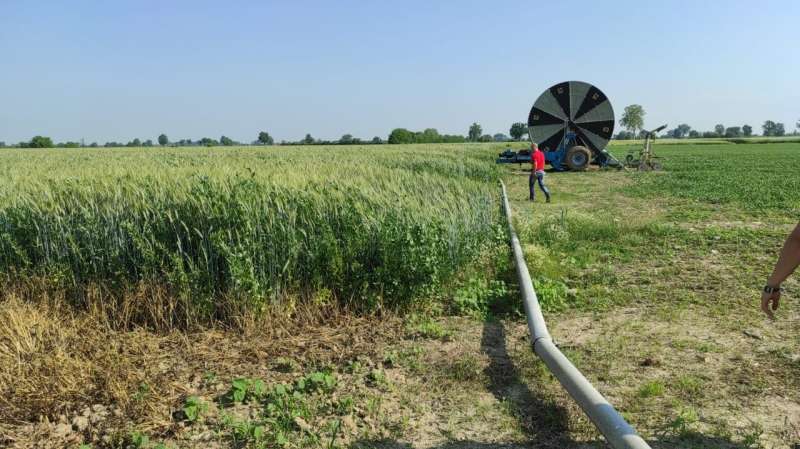Study: Farming community approves of crops and sustainable management practices chosen for diversifying European fields

Agricultural intensification, characterized by the high use of external inputs such as energy and agrochemical products, negatively affects the environment, leading to soil degradation, loss of biodiversity and increased greenhouse gas emissions. To revert this troubling situation and move towards sustainable agriculture that respects the environment, practices such as intercropping and reduced inputs are shown to be an effective tool backed by scientific consensus. However, such practices do not always have an easy route to their introduction.
To know the perception that the players involved in the agrifood system (farming community, agricultural technicians, public administrations, and associations) have regarding the adoption of multiple cropping systems and sustainable management practices in the specific case of cereals in Italy, a team from the Diverfarming project has carried out a consultation process on the benefits and barriers that the interested parties face when adopting this type of systems.
In the context of Italy, where the Diverfarming project trials multiple cropping options in both dryland cereal- as well as in irrigated cereal based systems, a public consultation was carried out among over 50 players (including farmers, technical advisers, technicians from the public administrations, NGOs, associations and research staff) on their practical knowledge of current diversification strategies as an alternative to agricultural intensification systems.
Thus, the team made up of research staff from the Consiglio per la ricerca in agricoltura e l'analisi dell'economia agraria (CREA), the Universidad Politécnica de Cartagena (UPCT) and the University of Tuscia gathered the opinions of the Italian agrifood sector regarding the most important agri-environmental issues, priority actions, the most appropriate farming practices and their effectiveness and the main barriers to adopting these practices and performed an analysis of these perceptions using a multicriteria analysis method (it is used to issue a comparative judgment between heterogeneous projects or measures).
With this the main problem that the players identified was the fear of losing profitability and the limited training in intercropping of many farmers. For the interested parties, a very important strength is that the alternatives chosen for rotations of cereal and tomato and multiple cropping (the introduction of legumes in the rotation) are already grown as monocrops and are adapted to the local soil and climate conditions, as well as being crops that are widely known by the growers.
The people surveyed considered that the practices of minimal tillage, maintaining plant cover, rotations, the application of manure and the use of green manure to be adequate and effective. These are the strategies of sustainable management that the project proposes and are not costly, do not require major investments in machinery nor highly skilled farmers, which suggests significant potential for their introduction.
Training farmers in these techniques and in managing diversifications would be one of the solutions to the barrier of the lack of training in intercropping, whilst the integration of this knowledge in public policies to support the adoption of sustainable farming practices may be a strategy to increase their acceptance.
The research was published in Frontiers in Environmental Science.Intercropping and sustainable farming practices increase soil carbon reserves
No comments:
Post a Comment